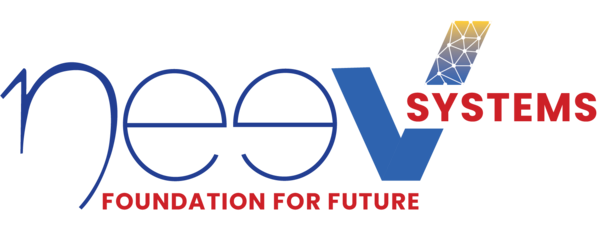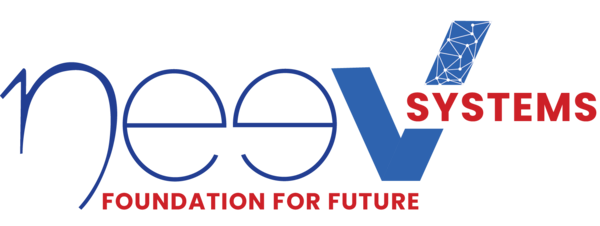In an era marked by heightened consumer expectations, a strained healthcare workforce, and the continuous entry of new market players, healthcare organizations compete fiercely for patient outreach and the acquisition of qualified healthcare professionals. To stay ahead in this demanding landscape, health IT departments are tirelessly working to fortify digital health experiences and enhance virtual care capabilities, harnessing the power of emerging technologies to meet the diverse demands of patients, providers, and staff. Key among these efforts is healthcare data migration, which plays a crucial role in ensuring seamless transitions and secure access to vital patient information across systems.
Today, healthcare CIOs are focusing on aligning IT systems through flexible support models to ensure sustained growth and competitiveness. At the core of this strategy lies a transformative process – digitization of healthcare data that streamlines patient information management and unlocks valuable data-driven insights capable of revolutionizing healthcare delivery.
However, amid the promise of digital transformation, a formidable challenge stands in the way – the intricate process of healthcare data migration. It is a complex process involving the transfer of patient records and healthcare information from one system to another or upgrading existing systems. Presently, the imperative for healthcare data migration transcends mere operational necessity—it represents a strategic imperative for organizational agility and competitiveness. Well-planned data migration strategies ensure data integrity, a critical need for quality patient care, compliance, and efficient operation.
While data migration in healthcare involves substantial costs and risks, its success or failure can significantly impact the efficiency and effectiveness of healthcare delivery.
Recent statistics from Gartner reveal a stark reality: while 83% of all data migration projects fail, over 50% exceed the planned budget and schedules. This high failure rate stems from the challenges inherent in transferring health data, including logistical complexities and ensuring the precision and accuracy of the transfer.
In this article, we embark on a comprehensive exploration of the challenges and actionable strategies to ensure seamless and cost-efficient data migration in the healthcare industry. As we unravel the intricacies of this critical process, we aim to provide valuable insights that empower healthcare CIOs, IT professionals, and stakeholders to navigate the complexities and maximize the value derived from their data journey.

Simplify Healthcare Data Migration
Navigating the Complexities of Healthcare Data Migration
The most pertinent challenges healthcare organizations face today are –
Data Complexity and Volume
Healthcare institutions grapple with managing extensive volumes of sensitive patient data, often in diverse and intricate formats. The migration of such complex and vast data necessitates meticulous planning, substantial data mapping, cleansing, and validation costs.
Interoperability in Data Migration
Legacy systems, deeply entrenched in healthcare infrastructure, often utilize proprietary data formats or structures that do not seamlessly align with modern systems or industry standards. Furthermore, transferring data across systems from different vendors usually causes compatibility issues. Healthcare organizations must adopt interoperability standards like Health Level 7 for seamless data exchange. Overcoming interoperability challenges during migration requires additional investments in data transformation and integration.
Downtime and Disruptions
The unavoidable need for system downtime during data migration introduces a significant challenge, disrupting regular healthcare operations. Downtime management in healthcare IT must balance between efficiency and continuity. Minimizing downtime while ensuring a smooth transition demands additional resources or temporary support, incurring extra costs.
Data Quality Assurance in Healthcare
Maintaining data integrity and ensuring quality throughout the migration process is a non-negotiable priority. Healthcare CIOs grapple with the challenge of resource allocation to validate and cleanse data, avoiding errors or inconsistencies that could impact patient care delivery.
Compliance and Security Risks
Healthcare organizations operate within a framework of stringent data privacy regulations, such as HIPAA, FDA, FHIR, etc. Data migration in healthcare systems can introduce potential security vulnerabilities and compliance risks if not handled with the utmost caution, inviting multiple breaches or penalties. Safeguarding patient information becomes a constant battle against evolving threats, placing healthcare entities in a delicate position where the intersection of technology and compliance demands advanced cybersecurity measures.
Legacy System Decommissioning
Post-migration, decommissioning legacy systems adds an extra layer of complexity and cost. Ensuring a secure and efficient transition while safeguarding critical data and eliminating the risk of data loss presents a formidable challenge for healthcare organizations.
Resource Allocation and Expertise
The acquisition of personnel with the requisite expertise in healthcare data migration is tough. Limited budgets may impede the ability to hire specialized talent or acquire advanced migration tools, leaving healthcare organizations grappling with the dual challenge of managing data migration complexities within financial constraints.
Vendor Support Costs
Engaging vendors or third-party services for migration support introduces additional expenses, impacting the overall budget allocated for data migration. Healthcare entities must weigh the benefits of external expertise against the associated costs to reap the optimal benefits of data migration.
Cost-Conscious Moves: Strategies for Effective and Successful Healthcare Data Migration
Strategic Planning and Prioritization
Embarking on a successful data migration journey for the healthcare sector necessitates a meticulous examination of existing data assets. Begin by conducting a comprehensive assessment, prioritizing critical datasets aligned with high-impact healthcare objectives. By focusing on improving patient care, optimizing operations, or enhancing analytics capabilities, healthcare organizations can strategically allocate resources where they will yield the greatest impact.
Robust Data Analytics Strategy
Leverage existing data analytics capabilities to uncover patterns and glean actionable insights from legacy data. These insights become the bedrock for an informed migration strategy, allowing organizations to concentrate on high-value datasets while minimizing the transfer of unnecessary information. Harness the power of analytics to drive optimal efficiency.
Synchronized Collaboration and Integration
Facilitate seamless collaboration among internal teams, payers, providers, and patients by integrating applications and data sources. This collaborative approach streamlines operations, improves care quality, and maximizes the utility of existing IT investments. The synergy achieved through integration enhances the overall effectiveness of healthcare services.
Read About: How Neev Systems Helped Guardian Health with Integration Solutions for Their Patient Insurance Eligibility Process
Low-Cost High-Impact Migration Approach
Adopt a phased approach to data migration, prioritizing low-cost, high-impact modules that deliver immediate benefits. Concentrate efforts on modules enhancing patient experience, operational efficiency, or data-driven decision-making. This pragmatic approach ensures a gradual and financially sustainable migration journey, yielding tangible results at each step.
Patient Experience Enhancement
Implement a customer data platform for data consolidation and real-time analysis. By leveraging insights gained from this platform, personalize and enhance patient healthcare experiences without requiring substantial additional investments. This customer-centric approach not only improves engagement but also contributes to the organization’s overarching goals.
Business Intelligence Centralization
Centralize healthcare data from diverse sources into insightful reports, dashboards, and visualizations. This centralization facilitates effortless analysis, KPI tracking, and informed decision-making, all achieved within the existing IT infrastructure. The emphasis on centralization ensures a cost-effective approach to data consolidation.
Optimized Resource Allocation
Utilize data analytics and predictive modelling to forecast patient demand and optimize resource allocation. This strategic use of data ensures effective management of healthcare professional relationships, maximizing outcomes within the constraints of limited budgets. It provides a data-driven foundation for resource allocation decisions.
Efficient Data Transfer Solutions
Implement seamless and secure data transfer solutions from legacy to modern or cloud-based systems. Thorough analysis, mapping, cleansing, and validation optimize the migration process without compromising data quality or integrity. Investing in robust data migration solutions in the healthcare system guarantees a smooth transition with minimal financial strain.
Post-Migration Support for Data Quality
Provide ongoing support post-migration to maintain data quality and integrity. This commitment ensures the migrated data in the healthcare system meets compliance standards and supports informed decision-making. Continuous monitoring and support are crucial elements in safeguarding the long-term success of the data migration initiative.
Cost-Effective Data-Driven Solutions
Identify the value of leveraging existing data assets for accelerated research, optimized supply chain management, and improved patient care. Emphasize how data migration in healthcare systems fuels these cost-effective initiatives, showcasing the long-term benefits of a strategic and financially mindful approach to healthcare data management.
Seamless Transitions, Limitless Possibilities: Your Journey with Neev Systems
Healthcare data migration is a pivotal milestone in modernizing healthcare systems and elevating the standard of patient care. The complexities and challenges in this process demand a strategic and proactive approach, relying on best practices and the support of seasoned IT service providers like Neev Systems.
Neev Systems: Your Data Migration Expert
As a one-stop IT services partner, We specialize in providing comprehensive data migration in healthcare and various industries and engineering services tailored to the unique needs of healthcare organizations. With a commitment to unlocking the true potential of your business data, Neev Systems offers top-notch Data and Analytics services. Harness the power of industry-leading business intelligence and advanced analytics technologies to ingest, transform, and visualize data and confidently make crucial revenue-impacting business decisions.
Comprehensive Data Solutions
At Neev Systems, our expertise extends beyond mere data migration. Our Data & Analytics solutions include
- Data Warehousing
- Data Modeling
- Data Mining
- Data Ingestion
- Data Analytics
- Data Migration
- Data Visualization
We are dedicated to continuous learning, ensuring that our knowledge in data and analytics remains cutting-edge. Whether you’re at the outset of your journey to become data-driven or seeking support to achieve specific business goals, our services cover the entire spectrum — from strategy and design to build, ongoing operation, and support.
Connect with us to learn more about our custom data solutions for your business.

Transform Your Healthcare Delivery

Amar Chand Dasari
With 15 years of experience in Data Analytics and Business Intelligence, Amar excels in designing scalable solutions for industries like Manufacturing, Finance, and Telecom. His expertise includes hybrid BI architectures with AWS, Azure, and Snowflake. Amar is passionate about delivering end-to-end solutions that turn data into actionable insights.


